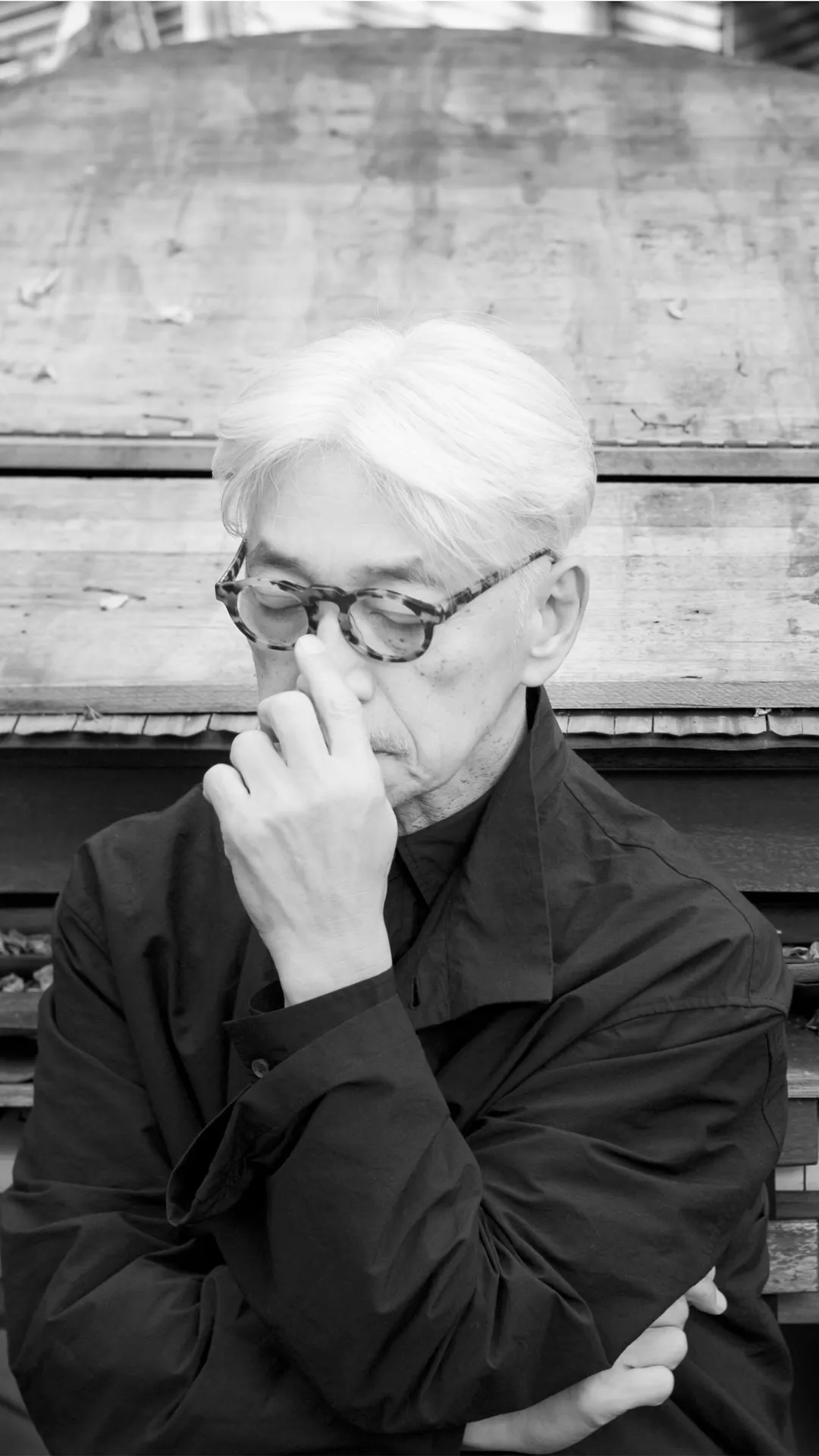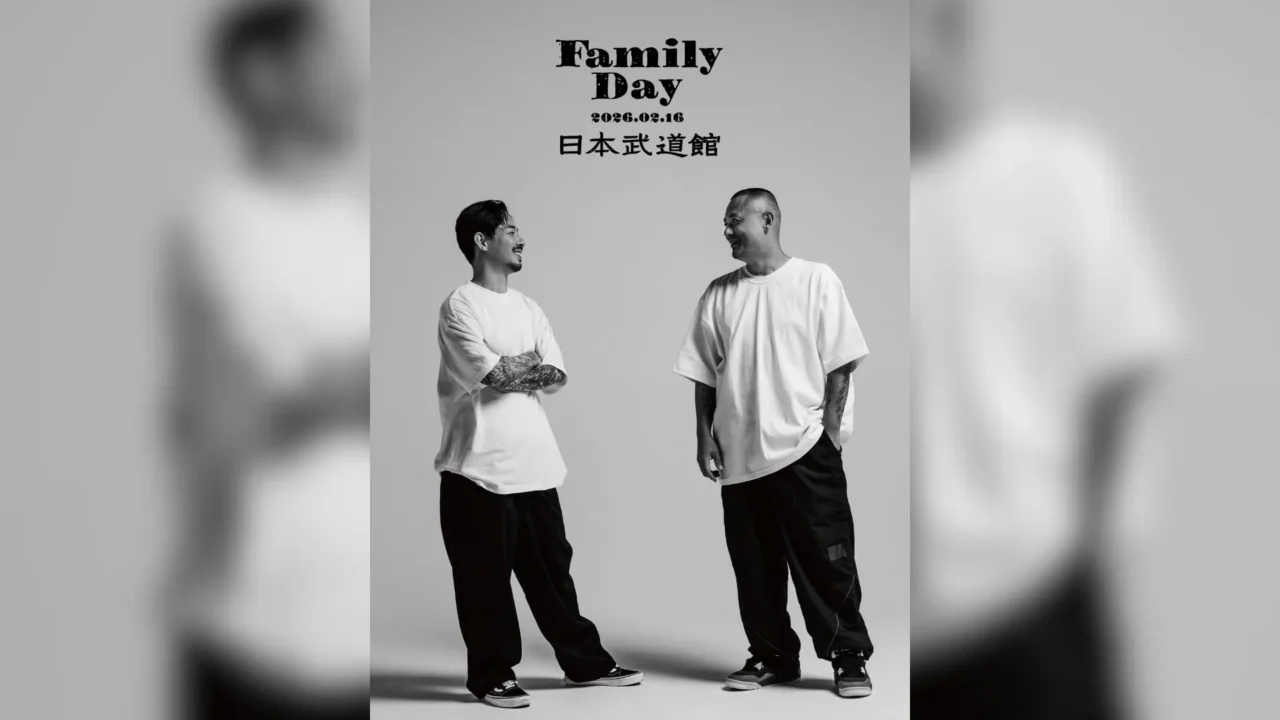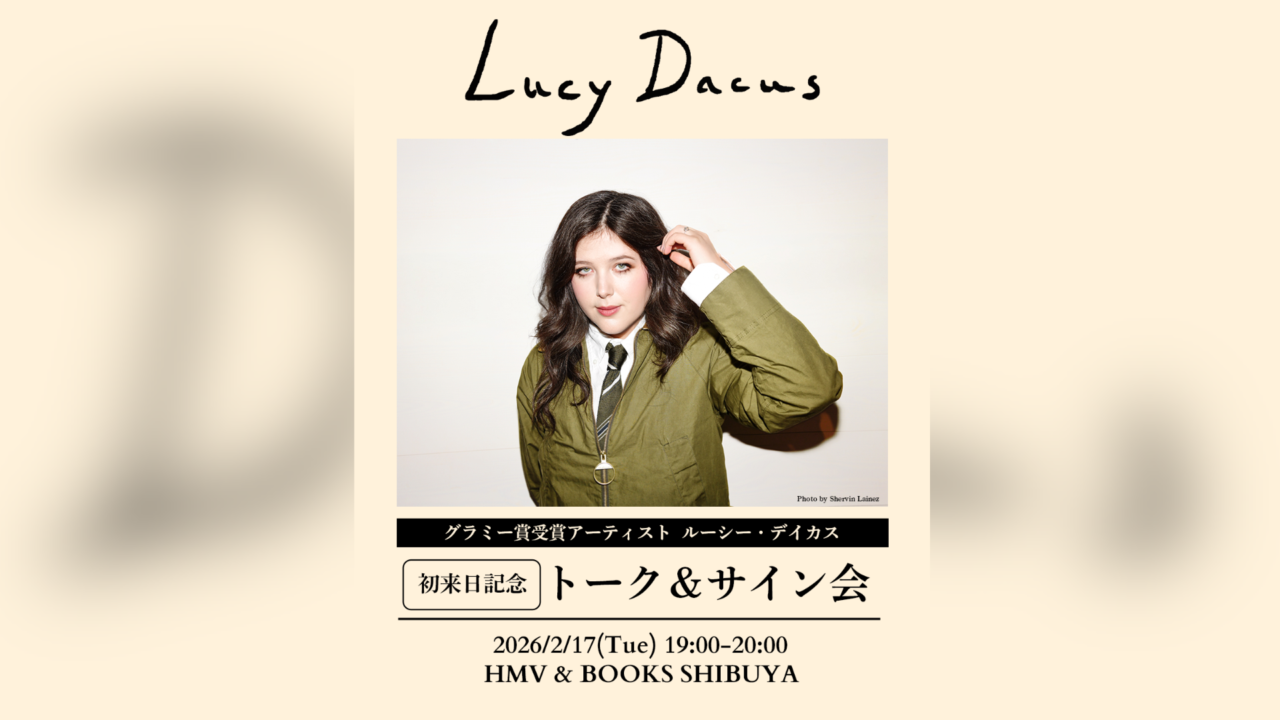INDEX
Ryuichi Sakamoto’s Late Reflections on Time and Life
There’s a journal entry about “time that drives you forward and time that does not.” Like in ”TIME,” the stage work featuring Min Tanaka, it seems that time was a major theme for Sakamoto in his final years. What are your thoughts on this?
Omori: I think it was a theme he couldn’t avoid confronting. Straightforwardly, I believe he wanted to understand, “What exactly is time?”
Note: “TIME” is a stage work by Ryuichi Sakamoto and Shiro Takatani (Dumb Type), with a focus on the concept of time. It premiered in Japan for the first time in March 2024, marking the first anniversary of Sakamoto’s passing, and includes readings from Natsume Soseki’s “Ten Nights of Dreams.”
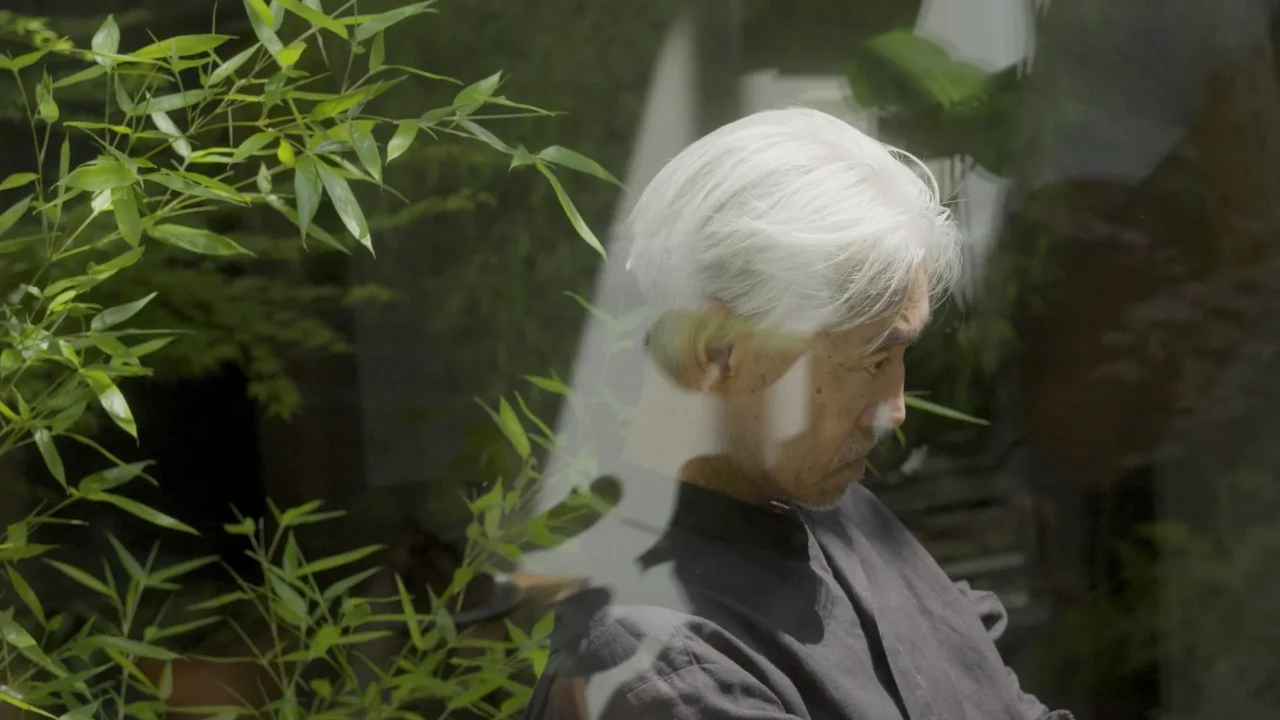
Omori: The phrase “time that drives you forward…” comes from Kenichi Yoshida’s book “Time” (first published in 1976). Sakamoto also read works like Carlo Rovelli’s “Helgoland” (2019), which deals with the idea that time does not exist in the usual sense.
He also often reflected in late interviews on things like, “Soseki died at 49, Mori Ogai at 61, and now I am 70 — this is my remaining time. How should I spend it?” I think one of the themes that fascinated him in his final years was time—not linear time, but nonlinear time, the kind of time that flows in unexpected ways.
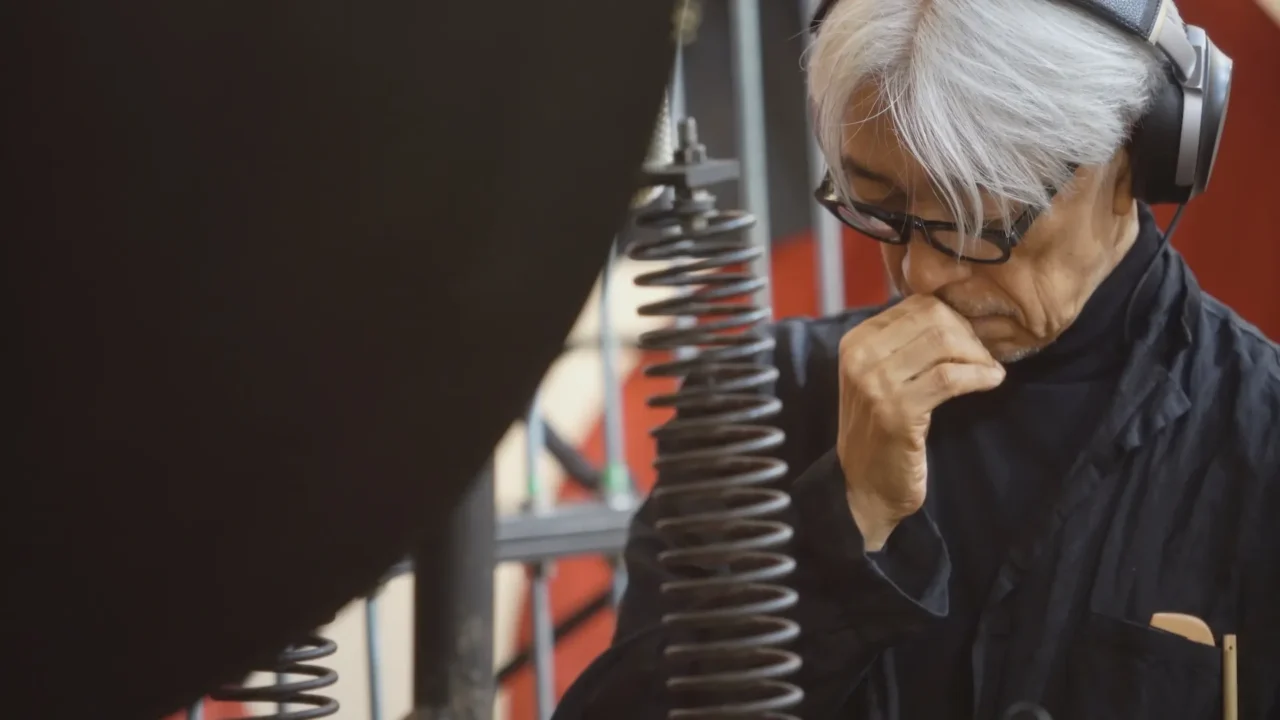
From “Ryuichi Sakamoto: Diaries” / © “Ryuichi Sakamoto: Diaries” Film Partners
In his journals, there are several moments where Sakamoto reflects on his life with a sense of regret. What do you think he felt he “regretted”?
Omori: Hmm… I don’t think it was about recognition or fame. I believe he was simply someone who was never fully satisfied. If he had been, he probably wouldn’t have kept creating music. I feel there was always this sense of longing, this “thirst” driving him. That’s just my guess—he might laugh and say, “What are you talking about?” if he heard me say that.
There’s also a striking scene with only audio, where Haruomi Hosono reflects, lamenting the deaths of former YMO members, saying, “Even with YMO, there was so much more we could have done musically.”
Omori: Exactly. As long as he was alive, he would have kept making music.
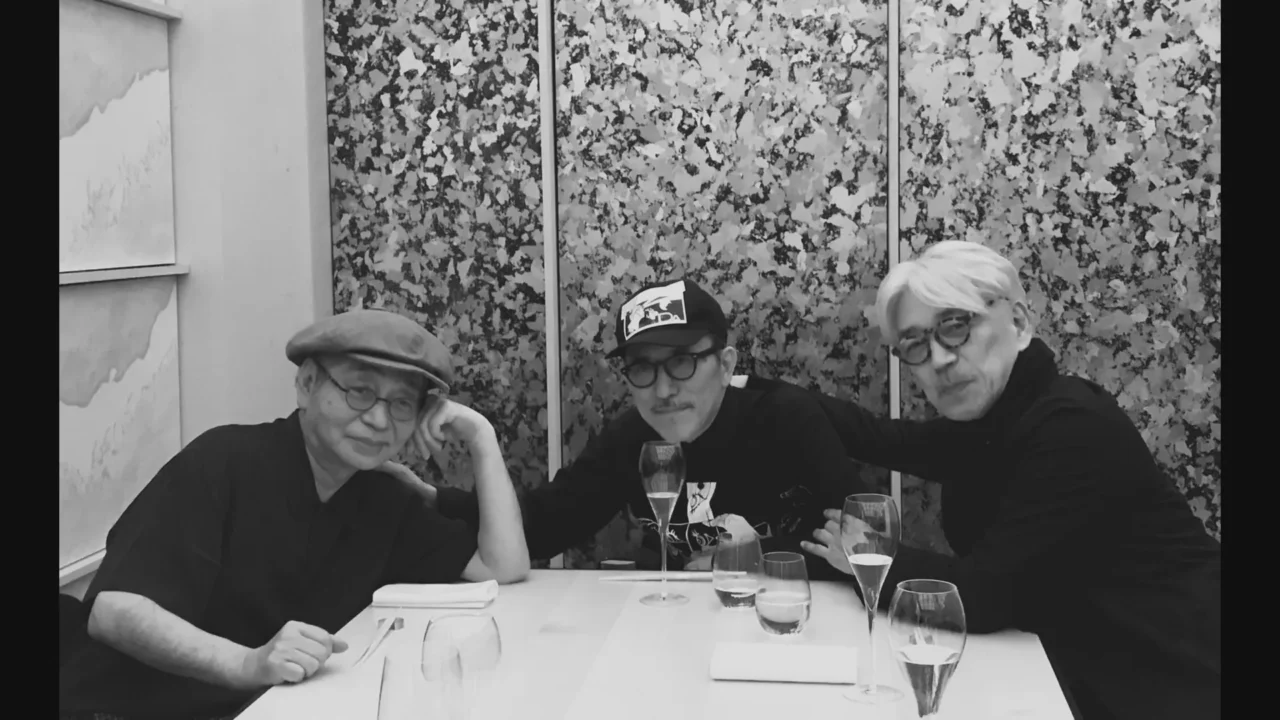
from “Ryuichi Sakamoto: Diaries” / © “Ryuichi Sakamoto: Diaries” Film Partners



